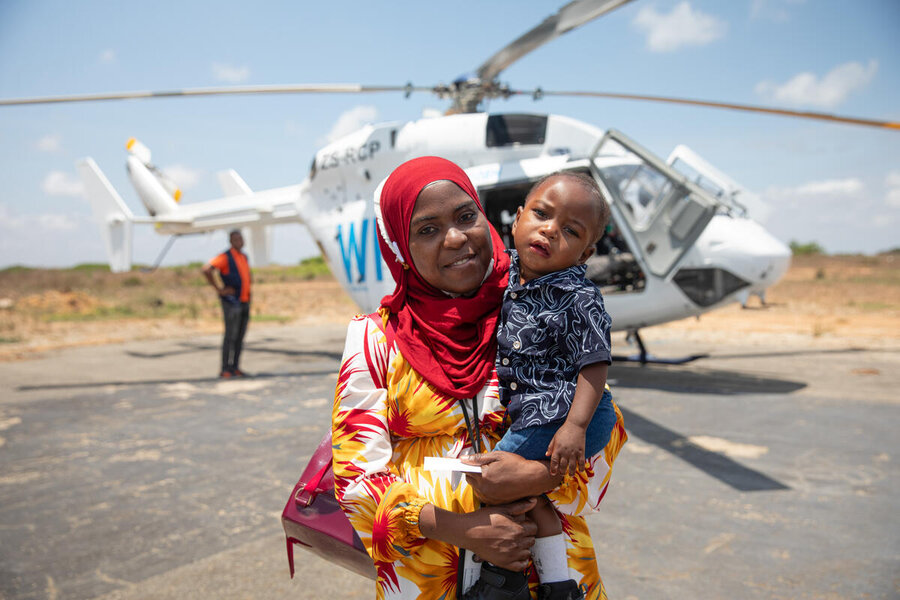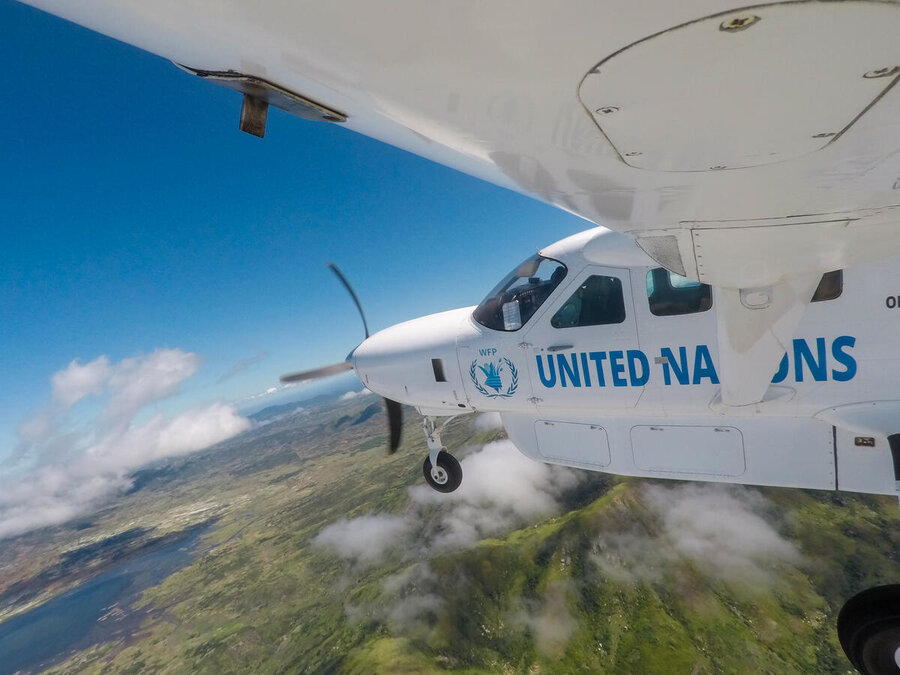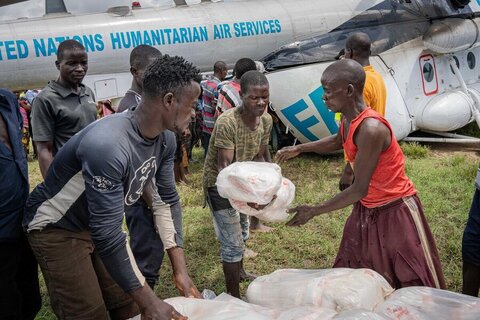
In Southern Africa, the UN's Humanitarian Air Service - which this year marks its 20th anniversary - is very simply "a lifeline".
"UNHAS is more than an air service, it is a lifeline," says Mamadou Mbaye, Country Director for the World Food Programme (WFP) in Madagascar.
When fast, safe and reliable humanitarian access and aid delivery is called for, WFP-managed UNHAS can sidestep access issues such as roadblocks be they caused by conflicts or climate disasters, hunger drivers which continue to scar the region.
Yearly cyclones often leave air transport as the only means of access. In places such as northern Mozambique, conflict puts areas beyond the reach of land transport or regular commercial flights.
Established in 2004, WFP-managed UNHAS provides global services to the humanitarian community where other viable air transport is unavailable.
Globally, last year, UNHAS flew more than 385,000 humanitarian workers from 600 organizations, along with 4,500 tons of relief cargo to places often too remote or conflict-torn for its commercial counterparts.
Meet Liliane
With her livelihood and home washed away by Cyclone Freddy in 2023, Liliane and her children found themselves without shelter or food in the southeast of Madagascar. Were it not for UNHAS flights, they would be largely cut off from the outside word.
"The sounds from a helicopter gave me hope, I felt like someone knew we were suffering and came to help," she says, recalling the first time she heard the noise. "And I was right, people jumped out of the helicopters carrying boxes of hot meals and biscuits - we did not feel alone anymore."
In 2023, UNHAS transported 2,630 humanitarian workers and 14 metric tons of cargo to the south and southeast of Madagascar alone.
Flights brought vital aid to people like Liliane who would've otherwise been out of reach.

Support from the EU has been critical to UNHAS operations in the region. In late 2023, a fully EU-funded helicopter was deployed for two months to fly 730 passengers and urgent relief items to otherwise inaccessible locations in Madagascar.
In Mozambique, UNHAS navigates humanitarian assistance through areas of conflict and insecurity. More than 60 humanitarian organizations are served by UNHAS.
"It's more important than ever that staff can rapidly and safely reach those who are in urgent need of assistance.," says Eugenia Saide Luis, an employee of the Ibo Island Foundation, one of many NGOs in Mozambique operating in the conflict-affected region of Cabo Delgado province, northern Mozambique.
Widespread insecurity and a very limited road and rail network in northern Mozambique make reaching communities in remote areas extremely challenging. In Cabo Delgado province, UNHAS provides both passenger and cargo transport, and ensures equal access for all those responding to emergencies and protracted crises.
UNHAS at 20: Humanitarian response planes and helicopters touch down in tough places

"UNHAS stands as a lifeline for both NGO workers and the communities it serves, providing a swift and efficient mode of transportation. This operational efficiency plays a pivotal role in ensuring that timely assistance reaches communities and families in need," says Mbaye. "Moreover, UNHAS acts as a lifesaver in supervising our staff, allowing us to seamlessly navigate between districts."
Since 2020, UNHAS has linked Cabo Delgado's provincial capital Pemba to seven neighbouring districts and transported 29,000 humanitarians and 191,000 metric tons of relief cargo. It has also conducted emergency evacuations of 336 people during the violent attacks in Palma in March 2021, and an additional 32 medical evacuation flights as well as 11 security evacuation flights.
In early 2023, in the wake of Cyclone Freddy, WFP supported the cholera response by providing free-of-charge logistics to humaniatarian partners in Mozambique. This resulted in 14 UNHAS flights packed with cholera vaccines, medicines, hygiene products and other vital items reaching the remote areas affected by Cyclone Freddy.
Currently, thanks to the generous support from the EU, UNHAS operates within Cabo Delgado, with Pemba as the main hub, providing scheduled flights to Ibo, Palma, Mocimboa Da Praia, Meluco, and Macomia, and flights on demand to Lichinga and Montepuez.
"The potential halt of UNHAS operations would present significant challenges to our work," said Mbaye. "If UNHAS were to cease operations, it would undoubtedly complicate matters for both us workers and the communities in need."






